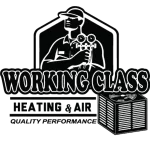Common HVAC Myths Debunked
When it comes to heating and cooling, there’s a lot of misinformation floating around. Many homeowners believe myths about HVAC maintenance, efficiency, and system lifespan that can actually lead to higher energy costs, premature equipment failure, and discomfort. In this article, we’ll tackle some of the most common HVAC myths and set the record straight, so you can make smarter decisions and keep your home comfortable year-round.
Why It’s Important to Separate HVAC Facts from Fiction
Your HVAC system is one of the largest investments in your home. Believing common myths can lead to poor maintenance practices, unnecessary repairs, and reduced efficiency. By debunking these misconceptions, you can save money, extend your system’s lifespan, and ensure optimal comfort.
Debunking Common HVAC Myths
Myth #1: You Only Need to Change Your Filter Once a Year
One of the most persistent myths is that HVAC filters only need to be replaced annually. In reality, filters should be checked every 1–3 months, especially during peak seasons. Dirty filters restrict airflow, causing your system to work harder and increasing energy use.
-
Truth: Regularly replacing or cleaning filters is essential for efficiency and indoor air quality.
Myth #2: Closing Vents in Unused Rooms Saves Energy
Many believe that closing vents in unoccupied rooms reduces energy use. However, doing so can throw off your system’s balance, leading to higher pressure in the ducts, potential leaks, and inefficient operation.
-
Truth: Your HVAC system is designed for balanced airflow. Blocking vents can cause more harm than good.
Myth #3: Bigger HVAC Systems Provide Better Comfort
Homeowners often think that bigger is better when it comes to HVAC systems. An oversized system may cool or heat your home quickly but will cycle on and off frequently, reducing efficiency and causing uneven temperatures.
-
Truth: Proper system sizing based on your home’s square footage and layout is crucial for consistent comfort and energy savings.
Myth #4: Thermostat Settings Don’t Affect Energy Costs
Some homeowners believe that adjusting the thermostat has little impact on energy consumption. In fact, lowering the thermostat in winter or raising it in summer by just a few degrees can lead to noticeable savings.
-
Truth: Smart thermostat settings and programmable schedules can significantly reduce energy bills.
Myth #5: HVAC Maintenance Is Optional
Skipping routine HVAC maintenance might seem like a way to save money, but it often leads to costly repairs and shortened system lifespan. Regular professional tune-ups improve efficiency, catch issues early, and keep your warranty valid.
-
Truth: Preventative maintenance is a wise investment that pays off in the long run.
Myth #6: Leaving the AC Running All Day Keeps Your Home Cooler
Many believe that keeping the AC running continuously, even when away, maintains a cooler home. However, this wastes energy and increases utility bills.
-
Truth: Use programmable thermostats to adjust temperatures when you’re away and return your home to a comfortable temperature before you arrive.
Myth #7: Duct Tape Is the Best Way to Seal Ducts
Despite its name, duct tape is not the ideal solution for sealing leaky ducts. It tends to degrade over time, losing its adhesive properties.
-
Truth: Use mastic sealant or HVAC-specific foil tape for durable, long-lasting duct sealing.
Myth #8: HVAC Systems Don’t Need Replacing Until They Break
Some homeowners assume they should keep using an old HVAC system until it fails. However, older systems are often less efficient, and frequent repairs can add up.
-
Truth: Upgrading to an Energy Star-certified system can save money on energy bills and reduce the risk of a total breakdown.
Myth #9: Cranking the Thermostat Cools or Heats Faster
It’s a common belief that setting the thermostat to extreme temperatures will heat or cool the home faster. HVAC systems work at a consistent rate regardless of the setting.
-
Truth: Set your thermostat to the desired temperature. Cranking it up or down won’t make it work faster, but it will waste energy.
Conclusion: Knowledge Is Power When It Comes to HVAC
Understanding the truth behind common HVAC myths empowers homeowners to make smarter choices about maintenance, efficiency, and system lifespan. By avoiding these misconceptions and adopting best practices, you can enjoy a comfortable home, save on energy costs, and keep your HVAC system running smoothly for years to come.





0 Comments